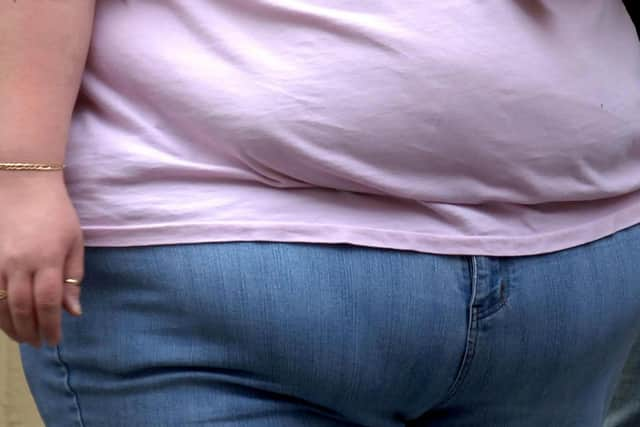Lancashire's firefighters regularly being called to move overweight people
and live on Freeview channel 276
Public sector union Unison says extreme obesity is a worsening problem for ambulance staff, with calls to the fire brigade for assistance increasingly common.
Home Office figures show crews from the Lancashire Fire and Rescue Service attended 43 callouts for bariatric assistance – helping ambulance staff to move obese people – in 2018-19.
Advertisement
Hide AdAdvertisement
Hide AdThat was higher than the 39 incidents recorded the previous year, and more than five times higher than the eight cases seen in 2012-13, when records began.


Firefighters often need lifting equipment and special slings to transport obese people, and sometimes remove windows, walls and banisters.
Freedom of Information requests to some fire and rescue services have shown the average cost to them of a callout is £400.
That would mean the cost of bariatric assistance in Lancashire last year came to around £17,200.
Advertisement
Hide AdAdvertisement
Hide AdFor some non-emergency cases, services have been able to recover costs since legislation was put in place in 2004.
Colm Porter, Unison’s national ambulance officer, said: “Going beyond the safe working load for specialist equipment creates dangers for both crews and patients.
“Staff have to assess each situation to decide whether they need assistance from other emergency services.”
Across England, crews recorded more than 1,200 incidents last year, a 17 per cent rise on 2017-18, and almost triple the 429 recorded in 2012-13.
Advertisement
Hide AdAdvertisement
Hide AdTam Fry, chairman of the National Obesity Forum, said the failure of successive governments to tackle the country’s obesity problem was to blame for the “appalling” figures.
He added: “As the already fat get even fatter expect an even larger number next year.
“Society’s main concern must be that crews engaged hauling the morbidly obese from their houses are unavailable to fulfil their principal duty of hauling people from burning buildings.
“If one death should occur as a result it would be a calamity and rightly see the Government disgraced.”
Advertisement
Hide AdAdvertisement
Hide AdIn Lancashire, 53 per cent of bariatric assistances required more than one fire engine or other vehicle in attendance, while three required four or more.
Firefighters most commonly spent between one and two hours at the scene.
On three occasions, they spent four or more hours.
A Department of Health and Social Care spokeswoman said: “Tackling obesity is a priority for this government, and we are committed to halving childhood obesity rates by 2030.
“Robust government action has decreased the sugar content in soft drinks by almost a third and we’ve invested millions promoting physical activity in schools.”